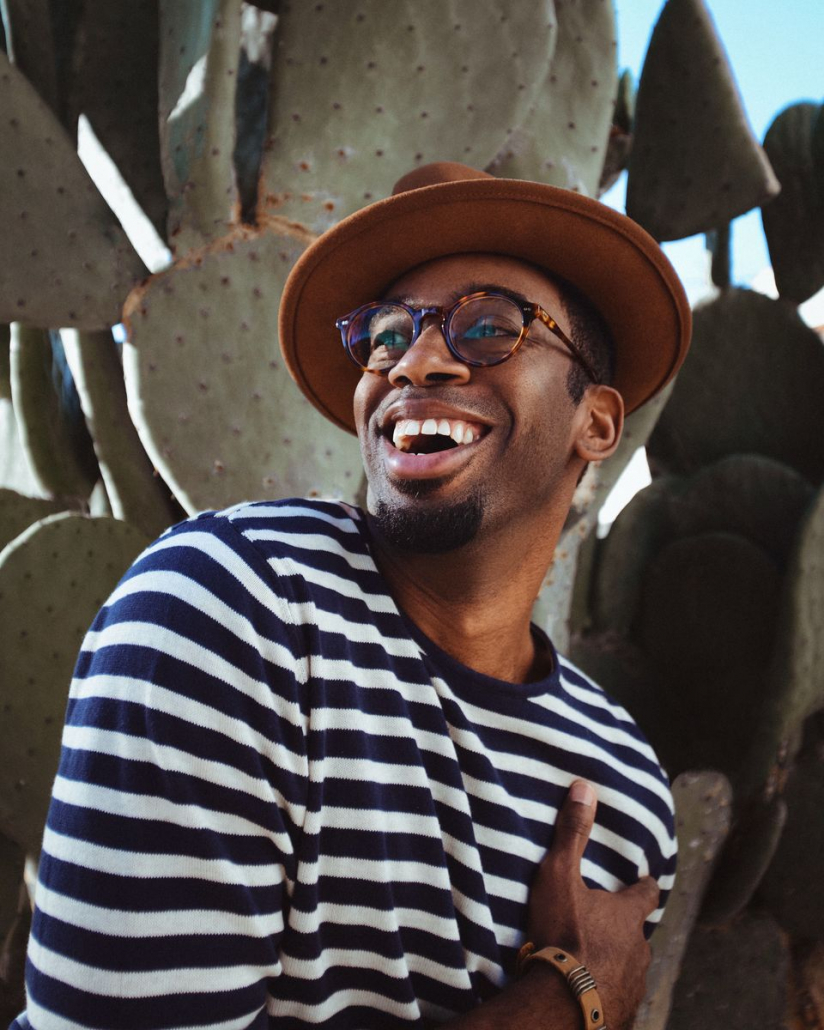Thank You 10 – Featuring: Dominique Kelley
Thank You, 10 is an interview series brought to you by Audition Cat, an upcoming app with career management tools for the professional auditioning performer. Each article interviews an industry professional with a different experience and opinion about what the future of auditioning looks like. Through these conversations, we hope an image will appear about what’s next for the industry, and what it aspires to be. Have someone you’d like to be considered for an interview? Reach out to us Facebook, Twitter, or Instagram.
Dominque Kelley

Pronouns: He/Him/His
Occupation: Choreographer/ Dancer
Link to Dominique’s work:
Credits:
Choreographer for Mariah Carey’s “Magical Christmas Special”
Choreographer for DCPA’s “Oklahoma!”
Choreographer for “Masked Singer”
Getting to Know You
Who are you? What’s your artistic background / what started your journey into the arts?
My name is Dominique Kelley, originally from Bridgeport, CT, and I’m a choreographer, dancer, educator, and consultant. I played basketball, football, tee-ball, went to the museum weekly, but nothing held my attention like dance. My earliest memory of dance infatuation was trying to learn Michael Jackson’s “Thriller” video but being horrified by the zombie and werewolf transformations. My mother told me I would take my arm and block out the top of their bodies from view so I wouldn’t see their faces but still try to learn the choreography to the best of my ability.
When did you set out on your current career path?
I was discovered by Savion Glover and Dianne Walker when I was 12 years old. My mother “encouraged” me to bring my tap shoes to their performance and pulled some strings so I could show them my steps. Shortly after, they sent out an APB to all the dance competitions in my area and located me through one of my dance teachers at the time, Liza Minelli. I auditioned and booked my first job doing the European tour of “Black and Blue”, thus starting my dance career.
What is your “mission statement” as an arts professional? What drives you to continue in this industry?
My mission statement is “train it until you gain it” instead of “fake it ‘til you make it”. I love to train in many different genres of dance and inspire others to keep learning and research as many aspects of the business as possible. My goal is to empower others to enter the industry as prepared as possible while feeling empowered to maintain their artistic point of view.
Within your artistic profession, what other industry roles do you work with most closely?
I love working with non-dancers. Whether actors, recording artists, athletes, or even the laymen: I enjoy translating pedestrian movement into dance pedagogy. I love educating educators also. My platform is inclusion and decentralizing white supremacy in dance as well as body positivity, mental health support, and body maintenance. Growing up, many trauma responses were “chalked up” to a rite of passage and I try my hardest to dispel that myth.
What do you wish was more widely understood about your profession?
Ironically, being a choreographer is the most competitive job in the world. There are few that can actually sustain a living from just choreographing alone. The pool of choreographers is soo small so whenever you do see someone who can thrive doing this profession deserves acclaim.
Auditions and You
In your experience, what is the most common pitfall that actors make with auditions?
The most common pitfall that actors make with auditions is a twofer for me. Preparation is key as well as being present in the moment. Memorizing sides, researching the role, warming up, arriving on time are all important to getting into the room with confidence. After you are inside, that’s where you have to drop into character and leave all the nerves outside. Sometimes, I love to give actors notes to see how they can modify their reading, abandoning all the things they’ve rehearsed before they got there.
Let’s talk about self-tapes! Self-tapes have become more and more common for auditioning actors, even more so during the pandemic. What do you like about self-tapes? What do you dislike about them?
I love watching self-tapes because I see the best of the auditioner. One can look their best, sound their best, and do as many takes as necessary until one feels comfortable with the final product. I dislike not seeing the person in the room and getting a sense of their vibe and energy. You can’t get or give immediate feedback nor get a sense of how quickly the actor can adapt to situations which can be a bummer.
As self-tapes become more and more prevalent in the industry, for your profession, what are the main differences between in-person and virtual auditions? What advice do you have for actors who have less experience with virtual auditions?
The advice I have for people who have less experience with virtual auditions is ask for help. Many tv/film/musical theater actors you’ve seen have gotten hired for work from a self-tape. In an ever-changing world that is becoming more and more technically advanced, don’t get left behind and lose out on work that you would be perfect for. If you are someone who likes to prepare and do it one time, then do that. Do a “one and done” and send that.. After making sure you’ve checked the frame and audio first of course.. haha.
If there was one piece of advice you’d give to any actor right before an audition or recording a self-tape, what would it be?
Breathe… literally breathe. Oxygenate your brain. Slow down your pulse. Take deep cleansing breaths. Quickly meditate and go for it.
How do you expand your “network”? When you interact with a performer for the first time, what inspires you, and what are you looking for in this initial interaction/audition to convince you to bring them back?
I only try to expand my network by being myself and having an honest, human interaction. Although it sounds cliche, asking people about themselves and finding common ground leads to better interactions instead of boasting, bragging, and “schmoozing”. We see right through it… And by we… I mean me… When I interact with a performer, I like honesty and confidence. Whether it’s a good day or a bad day, I love to know and see how it affects your performance and point of view in and out of the audition room.
Looking to the Future
What excites you about the future of the arts and auditioning in particular? What are your concerns?
What excites me about the future of auditions is the thought of it coming back. The pandemic has tested everyone’s patience and perseverance so the thought of a long audition process seems like a birthday party at the moment. The reservations I have about auditions in the future are fielding expectations, especially for people not computer savvy in front of and behind the camera.
Post-Pandemic, how prevalent do you think virtual auditions will be / what role will they play in the day-to-day casting process? Are there aspects of virtual auditions you’ve found that you prefer
I believe we will keep the virtual audition process because now no one has to actually go into an office to hold the audition. Not only can people film from home but the creatives casting do not have to leave the luxury of their homes to hire talent. I enjoy virtual auditions because I can cut my audition time in half. When holding dance auditions, they can last 10 hrs. Virtually, I can take less time and get through more auditions.
Self Tape setups are a financial and technical obstacle for many in our industry. For those who either can’t afford or don’t feel confident in the technical knowledge to use self-tape equipment, what advice can you offer to give them the best audition?
Use your cellphone. Find a clean wall behind you. Invest in a ring light with a stand if you don’t feel comfortable with someone in the room filming you. We can see through the environment if you give a riveting performance. Remember, we want you to be wonderful and get the job. We have the same goal… To hire you.
If you could rebuild the audition process however you’d want, what would it look like?
I would love to find more avenues to source marginalized communities into the room to be seen. It starts there.
The arts industry has inherent barriers to entry including but not exclusively race, socioeconomic status/background, gender, disability, and more. How do you think the industry should evolve to make it a more accessible, equitable, and intersectional space for all? Especially how can we apply this to the audition process?
I believe we need to meet people where we are. I have no clue how to do so but I will support the cause wholeheartedly. As someone who was found by unconventional means, I’m all for it. The more the merrier. No actor left behind…



Leave a Reply
Want to join the discussion?Feel free to contribute!